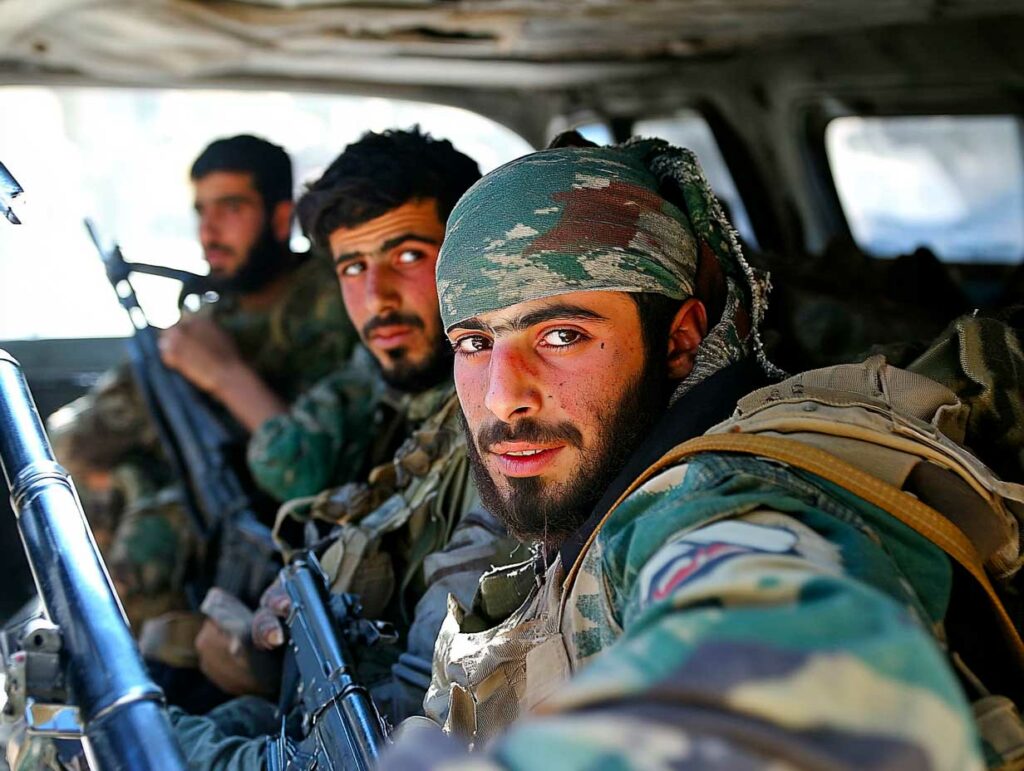
The capture of Aleppo by Syrian rebels marks a turning point in the conflict, exposing the failings of the Assad regime and its allies.
The offensive led by rebel forces in Syria has seen them enter Aleppo, the country’s second largest city. This strategic development highlights the vulnerabilities of Bashar al-Assad’s regime. Intense fighting has displaced thousands of civilians and disrupted key logistical axes such as the M5 highway. As Assad’s Russian and Iranian backers find themselves weakened by external commitments, this advance could redefine the front lines in the Syrian conflict, which has been going on for over 13 years.
The rebel offensive: an unexpected breakthrough
The rebel offensive began in north-western Syria, led by the Hayat Tahrir al-Sham (HTS) group, backed by allied factions and Turkish-backed groups. The attack, which began on November 27, 2024, resulted in the capture of several strategic locations around Aleppo. Among these gains, control of the M5 highway, linking Aleppo to Damascus, is particularly crucial.
In just three days, the rebels have advanced to within 10 kilometers of central Aleppo, with clashes reported in Mansoura and Tal Hadya. The speed of this advance reveals flaws in the Syrian regime’s defenses, weakened by the shifting of military resources to other conflicts.
Logistical and humanitarian issues
The rebels’ control of the M5 highway is seriously disrupting the Syrian regime’s logistics. This route is essential for supplies of weapons, food and fuel between Damascus and Aleppo. Its loss also complicates the mobilization of pro-Assad troops in the north.
On the humanitarian front, the UN estimates that over 14,000 people have been displaced in three days of fighting. Air strikes have killed 12 civilians and wounded 46 others. The closure of main roads is worsening access to humanitarian aid, further isolating local populations.

The fragility of Assad’s supporters
The Assad regime relies on crucial external support: Russia and Iran. However, the strategic priorities of these two allies are changing. Russia, engaged in the conflict in Ukraine, has reduced its resources in Syria, while Iran is under pressure from Israeli strikes on its positions in Syria. This situation limits their ability to effectively reinforce Assad against the rebel offensive.
In addition, Russian equipment, including MANPADS anti-aircraft missiles, has been captured by rebel forces, further weakening the regime’s air superiority.
Regional implications
Developments in Aleppo will have regional repercussions. Turkey, while in talks to normalize relations with Assad, supports several factions involved in the offensive. In addition, Israeli strikes on Iranian targets in Syria are complicating efforts to stabilize the regime.
The capture of Aleppo would represent a major blow for the Assad regime, demonstrating its difficulties in maintaining control over the entire territory. It could also pave the way for new international negotiations on the future of the Syrian conflict.
War Wings Daily is an independant magazine.